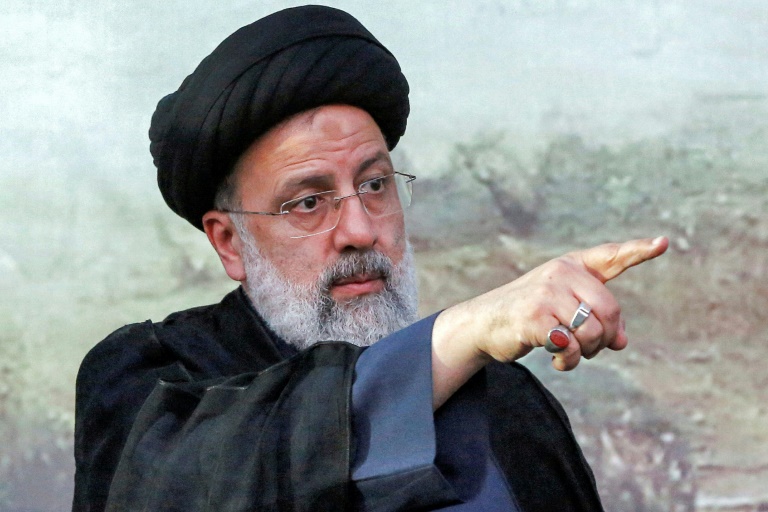Iranians will vote for a new president on June 18 in a poll many see as decided in advance, with ultraconservatives expected to strengthen their grip on power amid record low turnout.
Just seven men have been approved to run: five ultraconservatives and two reformists.
With his main rivals excluded from the final list of candidates, judiciary head Ebrahim Raisi is the clear favourite in the 13th presidential poll since Iran’s 1979 revolution.
Campaigning kicked off in late May with little fanfare. Few campaign posters are visible in Tehran apart from those of Raisi, who took 38 percent of the vote in the last election in 2017.
The mood has been dampened by coronavirus restrictions on public gatherings, and observers expect many voters to abstain — something that tends to favour the conservative camp.
Last year’s parliamentary elections saw 57 percent abstention and allowed conservatives to dominate the legislature, after thousands of reform or moderate candidates were disqualified.
Ahead of the presidential poll, the Iranian press had widely predicted a showdown between Raisi and moderate conservative Ali Larijani, an adviser to supreme leader Ayatollah Ali Khamenei.
But after the powerful Guardian Council barred Larijani and other heavyweights from the poll, those who remain appear unlikely to pose a serious challenge to the ultraconservative judiciary chief.
– Economic crisis –
The office of president has limited powers in Iran, where ultimate power lies with the supreme leader.
Current President Hassan Rouhani is nearing the end of two consecutive four-year terms, meaning he is constitutionally barred from running this year.
Rouhani took office vowing to seek better ties with the West.
But that stance took a severe blow in 2018 when Washington withdrew from a landmark agreement on Iran’s nuclear programme and reimposed biting sanctions.
This year’s election coincides with negotiations in Vienna to revive the 2015 nuclear deal.
But a breakthrough appears unlikely before the election, and both Tehran and Washington have voiced doubts over the prospects of success.
The renewed sanctions have plunged Iran into a deep economic and social crisis, further exacerbated by the pandemic.
Iran saw two waves of winter anti-government protests in the years prior to the pandemic, both of which were harshly put down.
In a live televised debate Saturday, Raisi avoided clashing with reformists, instead focusing on Iranians’ economic woes.
“Inflation is one of the serious problems people are facing today,” along with the “dishonesty of certain officials” he said.
– ‘More coherent’ –
Clement Therme, an expert at the European University Institute in Florence, said Iranian leaders hoped this month’s election would help make the “regime” more “coherent”.
Having taken control of parliament in 2020 and “faced with the impoverishment of the population”, conservatives are “now preparing the ground… for a Raisi victory”, he said.
He added that other scenarios were unlikely, as rare opinion polls show that less than 40 percent of the electorate intend to vote.
With opposition groups outside Iran using social media to call for a boycott, Khamenei has urged Iranians to vote in numbers in a show of defiance to the “enemies of Islam”.
He also ordered candidates to avoid public statements on subjects other than the economy.
Raisi’s challengers include ex-Revolutionary Guards chief Major General Mohsen Rezai and ultraconservative former nuclear negotiator Saeed Jalili.
The list also includes reformist ex-vice president Mohsen Mehralizadeh and central bank governor Abdolnasser Hemmati.
Both are seen as reformists but neither has gained the support of the main reformist coalition.
If none of the candidates wins an overall majority on June 18, the two with the most votes will go head-to-head in a second round runoff on June 25.










